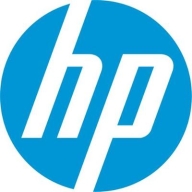

HP Wolf Security and Deep Instinct Prevention Platform compete in cybersecurity solutions. HP Wolf Security stands out for its ease of deployment and customer service, while Deep Instinct Prevention Platform is known for its advanced features and effective threat prevention.
Features: HP Wolf Security's standout features include robust endpoint protection, reliable threat detection, and simplicity in use. Deep Instinct Prevention Platform offers advanced deep learning for preemptive malware stopping, cutting-edge technology, and a comprehensive feature set.
Room for Improvement: HP Wolf Security users suggest integrating better capabilities and improving reporting tools. Deep Instinct Prevention Platform users point to the need for a more user-friendly setup, interface enhancements, and additional user training resources.
Ease of Deployment and Customer Service: HP Wolf Security is noted for its easy deployment process and highly responsive customer service. Deep Instinct Prevention Platform, while offering strong technical support, has a more complex initial setup.
Pricing and ROI: HP Wolf Security is rated favorably for its pricing structure and perceived return on investment, offering good value for money. Deep Instinct Prevention Platform, although priced higher, is considered worth the investment due to its superior technological capabilities and performance.

Deep Instinct PREVENTS >99% of UNKNOWN threats like ransomware and zero-days before they land inside your environment – not after. With both an agentless and agent-based approach, we ensure file-based and fileless attacks are prevented. To achieve this, Deep Instinct is pioneering the use of deep learning AI to prevent threats in <20ms, without requiring calls to the cloud for threat intelligence. Our ability to scale to the needs of the enterprise is unprecedented as is our delivery of the industry’s lowest false positive rate of <0.1%.
The Deep Instinct Prevention Platform combines industry-leading static analysis based on the only deep learning framework dedicated to cybersecurity and includes two solutions:
To learn more, visit: https://www.deepinstinct.com.
HP Wolf Security is a comprehensive cybersecurity solution that bolsters your organization's cyber-resilience on multiple fronts. With its full-stack security approach, it ensures layered protection from hardware to the cloud, providing a robust defense against cyber threats. HP Wolf Security introduces endpoint isolation, a cutting-edge feature that effectively halts threats that may go unnoticed by Next-Generation Antivirus (NGAV) and Endpoint Detection and Response (EDR) systems. Moreover, it extends its security coverage to printers, equipping them with advanced detection and self-healing capabilities to further safeguard your digital ecosystem. This integrated solution streamlines IT and security risk management, resulting in fewer alerts and false positives, and reduces the time and effort required for endpoint incident analysis and remediation. Notably, HP Wolf Security prioritizes productivity, allowing you to manage risk without disrupting the user experience, enabling worry-free work from anywhere, and offering rapid IT disaster recovery at scale.
We monitor all Endpoint Protection Platform (EPP) reviews to prevent fraudulent reviews and keep review quality high. We do not post reviews by company employees or direct competitors. We validate each review for authenticity via cross-reference with LinkedIn, and personal follow-up with the reviewer when necessary.